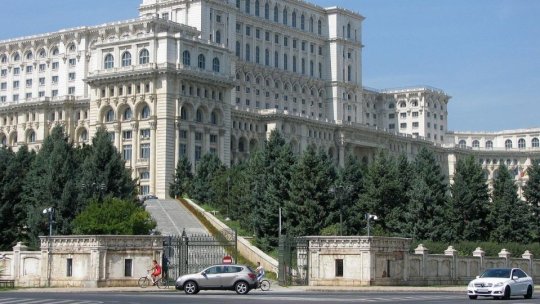Financial Press Review, 18 February
Articles from the dailies Bursa, Ziarul Financiar and Curierul Naţional.

Articol de Dinu Dragomirescu, 18 Februarie 2011, 18:14
The Bursa opens with an article entitled ‘Petrol smuggling. A bigger scandal than cigarettes’ which reads: ‘In the smuggling world, cigarettes are small business compared to petrol’, former Ministry of Finance Sebastian Vlădescu declared for Bursa, when inquired about tax evasion.
‘Tax evasion is a complex issue, each case has to be considered separately, the former Ministry of Finance suggests, comparing cigarette smuggling with petrol smuggling and tax evasion in the food industry. (…) These are different worlds.
At Oil Terminal we are talking about trains, tanks, pipelines. Near the Ukraine border, for example, there are ships that still trade diesel oil without excises, unloaded in next port and introduced into Romania.
Oil product smuggling is an area with extensive tax evasion, while cigarette smuggling is mostly a small-time business, Vlădescu believes. We will have to struggle on the oil product market to see how deep the distrubution channels are’.
‘But, if in the case of petrol and cigarettes evasion profits come from unloyal competition with producers and retailers that observe the law and watch their turnover fall proportionally with the ‘black’ market quota, in the food industry tax evasion is encouraged by poverty. (…) The poorer the people, the harder it is to fight tax evasion’, Bursa quotes Sebastian Vlădescu.
He concludes: ‘If the former Ministry of Finance has a correct perspective of the proportions between cigarette and petrol smuggling, we can imagine how changing the octane number after this huge scandal would shake the Romanian population’.
The first page of the Curierul Naţional reads: ‘How should the Fiscal Code be changed in 2011?’
‘Even if in the past years the Fiscal Code has been amended countless times, there were 14 amendments last year alone, 2011 is no exception from what seems to have become a national sport. Even with all these amendments, fiscal consultants believe the current Fiscal Code still needs to be changed so that is gives businessmen a stable and predictable environment’.
‘Although until now fiscal law was drafted as if taxpayers were presumed guilty, authorities are hoping to finish the new Fiscal Code by the end of the year, so that it supports and not interfere with businessmen’, the daily quotes Ministry of Public Finance Dan Tudor Lazăr.
The Ziarul Financiar prints an article entitled ‘Banks have diminished short-term debt in 2010, after a one-year break’.
‘Banks have resumed foreign financing’, the daily reads. ‘Starting 2009, foreign debt changed its trajectory from private sector to government sector. As a consequence, the biggest threat remains the pace at which foreign and domestic public debt increase, since the public sector is still inefficient’, the Ziarul Financiar reads.
The same daily reads ‘Government admits compensating former owners was a failure and promises new solutions’. ‘The European Court of Human Rights forced Romania to solve the problem of nationalized houses until the summer of 2012’, the Ziarul Financiar reminds us.
The Curierul Naţional prints and article on the proposal to introduce a tax on banks’ profits.
‘A tax on banks’ profits would be counterproductive and would only be charged by credit institutions, but paid by the clients themselves’, the daily quotes Steven van Groningen, Executive President at Raiffeisen Bank.
‘It is cheaper credit, that Romania needs, not more expensive credit’, van Groningen said.
‘Asked whether there had been talks with the Government about overtaxation on banks, the Raiffeisen boss said that there had not been, although there should be a normal consulting process in any bill’.
Translated by: Gabriela Lungu
MA Student, MTTLC, Bucharest University









